Resources
Teaching about "race" and racism to a diverse student group can lead to some very interesting exchanges. Some of these moments are much to do with the subject content. Learning about racism often pulls on our emotional strings: black students sometimes express their hurt and anger, while white students sometimes remain silent or express their hurt, shame and discomfort. The lecturer's racialised identity is an important factor in these emotional exchanges. Black lecturers are sometimes judged for their "loyalties and sensibilities" with the black community, while white lecturers are questioned for their understanding and sympathies with "race"/racism issues. This paper considers how social identities and physical appearances impact on the teaching and learning process and issues of student and lecturer positionalities and identities in the Higher Education context. In particular, it examines how much being white or black can "matter" in teaching and learning about race and racism, and the importance of critical pedagogy. Theoretical reflections on identity construction and management are themed through these discussions. The conclusion argues that the teaching of "race" and racism is not only about identity or ethnicity, but the development of teaching strategies that are inclusive of black experiences; and questions power structures and relations found in whitearchy and patriarchy.
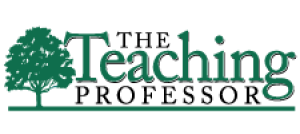
Journal Issue.

What is distinctive about the ways specific disciplines are traditionally taught, and what kinds of learning do they promote? Do they inspire the habits of the discipline itself, or do they inadvertently contradict or ignore those disciplines? By analyzing assumptions about often unexamined teaching practices, their history, and relevance in contemporary learning contexts, this book offers teachers a fresh way to both think about their impact on students and explore more effective ways to engage students in authentic habits and practices. This companion volume to Exploring Signature Pedagogies covers disciplines not addressed in the earlier volume and further expands the scope of inquiry by interrogating the teaching methods in interdisciplinary fields and a number of professions, critically returning to Lee S. Shulman’s origins of the concept of signature pedagogies. This volume also differs from the first by including authors from across the United States, as well as Ireland and Australia. The first section examines the signature pedagogies in the humanities and fine arts fields of philosophy, foreign language instruction, communication, art and design, and arts entrepreneurship. The second section describes signature pedagogies in the social and natural sciences: political science, economics, and chemistry. Section three highlights the interdisciplinary fields of Ignatian pedagogy, women’s studies, and disability studies; and the book concludes with four chapters on professional pedagogies – nursing, occupational therapy, social work, and teacher education – that illustrate how these pedagogies change as the social context changes, as their knowledge base expands, or as online delivery of instruction increases. (From the Publisher)
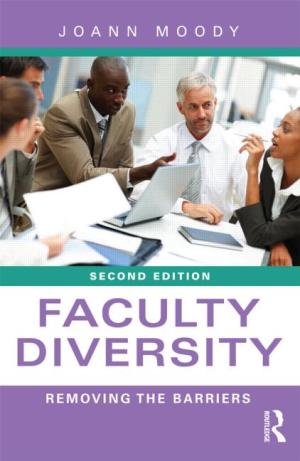
Why do we see so little progress in diversifying faculty at America’s colleges, universities, and professional schools? This book explores this important question and provides steps for hastening faculty diversity. Drawing on her extensive consultant practice and expertise as well as research and scholarship from several fields, Dr. Moody provides practical and feasible ways to improve faculty recruitment, retention, and mentorship, especially of under-represented women in science-related fields and non-immigrant minorities in all fields. The second edition of Faculty Diversity offers new insights, strategies, and caveats to the current state of faculty diversity. This revised edition includes: • New strategies to prevent unintended cognitive bias and errors that damage faculty recruitment and retention • Expanded discussion on the importance of different cultural contexts, political, and historical experiences inhabited and inherited by non-immigrant faculty and students • Increased testimonials and on-the-ground reflections from faculty, administrators, and leaders in higher education, with new attention to medical and other professional schools • Updated Appendix with Discussion Scenarios and Practice Exercises useful to search and evaluation committees, department chairs, deans, faculty senates, and diversity councils • Expanded chapter on mentoring that dispels myths about informal mentoring and underlines essential components for formal programs. Moody provides an essential, reliable, and eye-opening guide for colleges, medical, and other professional schools that are frustrated in their efforts to diversify their faculty. (From the Publisher)
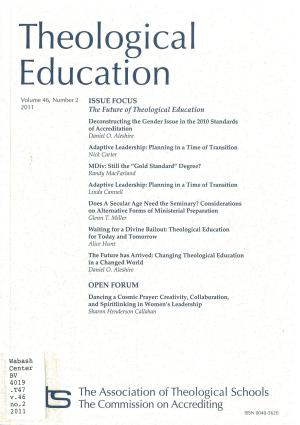
Journal Issue. Full text is available online.
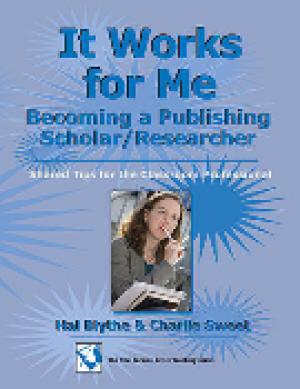
The authors’ purpose in this book is to provide “a collection of practical tips drawn from real-life experiences.” We believe this particular book is so important to share with today’s audience, we almost called it Take My Book, Please! On the other hand, does the scholarly world need another book on the importance of scholarship? Further, if the book standard for tenure is slowly disappearing because so many academic presses are closing, why would we bother to write one? And recent studies show that new faculty members consider university employment a 9:00-5:00 job, so doesn’t that leave out time for job-related reading? Finally, with the instant gratification of the internet, aren’t books dead in our culture or at least well on their way to extinction? Why, then, in the name of all that’s sane, did we put this collection together? a. Our publisher wanted a follow-up to our It Works for Me as a Scholar-Teacher as he believed we had a lot more to say on the subject. b. With over 800 publications, we thought we had something insightful to say. c. Most books on the importance of scholarship are either textbook in nature or extremely theoretical, while this book is neither. d. With our successful It Works for Me series we’ve found a niche in the marketplace. e. Being a large collaboration, this book provides many voices who all believe that reiterating the importance of scholarship is important. f. With a series of short, practical tips on scholarship, this book is very easy to read and, hence, might be read. Actually, all of the above are true. We feel certain you will benefit from the collective work found between these covers. To find information on the full “It Works for Me” series, go to www.newforums.com. (From the Publisher)
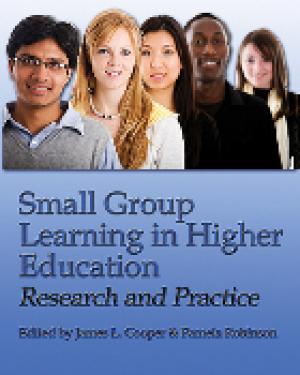
This volume contains material on research based teaching techniques for use in higher education. The focus is on small group learning procedures. None of this material has previously appeared in book form. Twenty of the articles first appeared in the Cooperative Learning and College Teaching newsletter that Jim Cooper and Pamela Robinson edited from 1990 to 1999. These articles address applications of small group learning within a variety of academic disciplines. (From the Publisher)
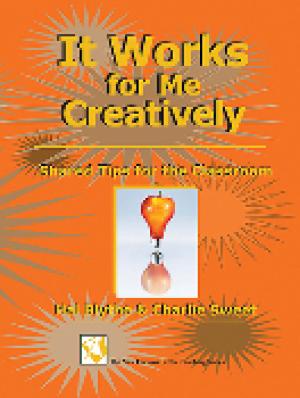
The authors’ purpose in this seventh book in the “It Works for Me” series is to demonstrate that “everyone possesses creative talent, though it may be latent in some and difficult to bring out in others.  It’s not just a talent possessed by artists and engineers, mind you, but everyone.”  Furthermore, “Creative people have figured out consciously or un- that a small seed of creativity can be made to grow by having the proper environment and a minimal set of skills.  And people can be taught or self-taught this process.” The authors/editors also believe that “all creative ideas link themselves to other creative ideas to develop something new and useful, be it a concept, a process, or a product.  In order to disseminate and perpetuate [their] belief that the creative impulse resides in all of us, [they] have asked a host of friends to demonstrate it with essays and practical tips touching on supportive creative environments, strategies that foster and enhance creativity, and assessments that demonstrate creativity has indeed taken place.” (From the Publisher)
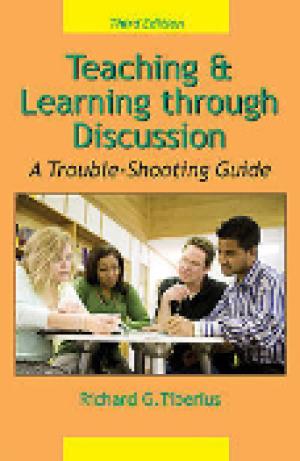
If your class is ever bored, hostile, aggressive or just not quite right, this teaching improvement manual is for you! Packed with proven tips for making small class teaching more effective, it is full of advice that is easy to apply and aimed at solving day-to-day teaching problems quickly. Well organized and designed to help lift flagging classroom morale and interaction, the book provides specific practical suggestions for a broad range of problems that teachers of all age groups regularly encounter, including: • dealing with problems of group goals, whether goals are unclear, unattainable, or unacceptable; • solving problems of group interaction, whether the group lacks interaction, is dominated by the group leader, or fails to share the interaction; • motivating the group and yourself when either begins to “tune out” or when students don’t cooperate. (From the Publisher)
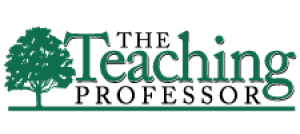
Journal Issue.